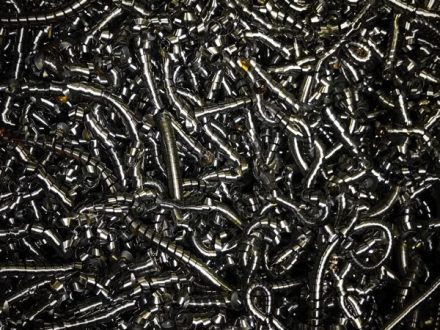Today’s eco-question: Is metal really infinitely recyclable? The
While leather is traditionally touted as one of the oldest forms of recycling, metal also boasts this attribute. But can this recycling veteran further claim that metals are infinitely reusable?
A sound reputation
There are many reasons for recycling metals. In view of the increasing scarcity of non-renewable resources, reducing mining operations helps preserve our available geological resources. Furthermore, the excavation and transformation of ores can lead to land erosion, intensive energy use and air and water pollution. These health risks are coupled with labor conditions that are often precarious or even obscure.
Overall, it’s true that metals used in metal components or jewelry can be recycled many times over.
Metallic elements are compacted, heated at low temperatures to remove impurities, lacquers and varnishes, then melted and refined to their purest form using electrolytic treatments. The metal is then transferred to a cooling chamber to be solidified so it can be used again. Steel, zamack, brass, gold and silver can thus have multiple lives.
Some metals such as aluminum can lose quality over the course of multiple recyclings, and must be mixed with a virgin ore at some point to retain their qualities. Platinum is one of the rare metals that is not often recycled, because the process requires a mixture of acids or electrochemical processes that release toxic fumes.

Read also: Smart Key: Can metallic accessoires be ecological and ethical?
Collecting the precious materials
As in the textile industry, it’s actually pre-consumer waste deposits that are used to make recycled metal materials. Production scraps and defective items are transformed to give them a new lease on life. Some manufacturing processes generate quite a lot of waste material, so recycled versions of the metal can be put back into circulation quite quickly.
Although recycling operations are energy intensive, the energy required to produce a recycled material is still less than that needed to develop a virgin metal. Recycling is therefore a real advantage for metals, although processes and channels need to be consolidated in order to increase its implementation.
If aluminum and steel are largely recycled today, it is thanks to single-material products designed upstream and integrated with well-established collection and transformation systems.
Beyond their recyclability, metal items now also have to impose responsible channels, such as Fairmined, which provides social and environmental guarantees, to ensure a virtuous product over the course of a metal’s entire life-cycle.
